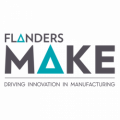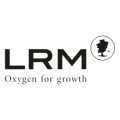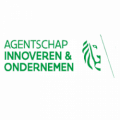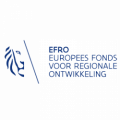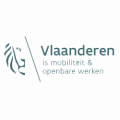Autonomous shuttles without safety stewards at Terhills by the end of 2022
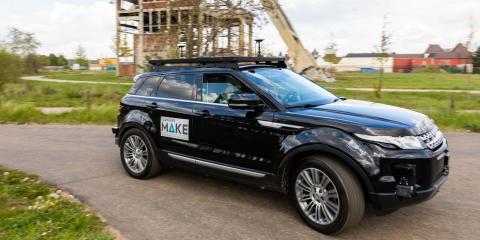
Innovation project of LRM, De Lijn and Flanders Make with the support of ERDF and the Flemish government
Maasmechelen/Dilsen-Stokkem - In the presence of Hilde Crevits, Flemish Minister for Economy & Innovation, Lydia Peeters, Flemish Minister for Mobility and Tom Vandeput, Commissioner for Economy, the starting shot was fired at Terhills for an innovation project concerning self-driving shuttles. The Limburg investment company LRM, Flanders Make and De Lijn have the ambition to develop a transportation system of self-driving shuttles that can drive a distance of 2.5 km, back and forth, without a safety steward. Terhills will become a multimodal testing ground where new vehicles, technologies, infrastructure and services can be tested in a controlled and safe environment. Various means of transport will be made available via a mobility app to both guests staying at the Terhills Resort and day-trippers. By the end of 2022, the innovation project will be completed with the realisation of an own autonomous transport system. Smart Mobility Terhills' is financially supported by the European Regional Development Fund (ERDF) and the Flemish government.
Autonomous transportation system
The ERDF project 'Smart Mobility Terhills' aims to offer a complete mobility solution to visitors to the vast Terhills area. The shuttle track that has already been constructed connects the main attractions on the Terhills site.
Visitors and stayers can organise their complete mobility needs via an innovative smartphone application. They can easily discover where they can rent bikes and electric boats, unlock electric steps from a charging station or take the electric shuttle at the nearest stop.
Central to the innovation project, and in addition to the existing transport offer, the project partners LRM, Flanders Make and De Lijn want to develop their own autonomous transport system with self-driving shuttles on the site by the end of 2022.
Role of Flanders Make
"We want to thoroughly test and analyse both the self-driving shuttles and the passengers' reactions," says Dirk Torfs, CEO of Flanders Make. "This site on private property is an ideal controlled living lab environment where technology providers can test their latest innovations in real conditions for a longer period of time. Currently, self-driving shuttles still have a safety steward on board and drive relatively slowly. Our ambition is to make the shuttles so safe and efficient that they can drive completely independently. A camera system keeps them connected to a control centre. There, the steering can be taken over if necessary. This is an important step towards autonomously driving vehicles on public roads." Through this project, Flanders Make supports:
- The required connectivity to:
- Test the technology of self-driving vehicles step by step;
- Estimate the required capacity of mobility solutions;
- Evaluate and influence user behaviour.
- The Flemish and European technology providers to:
- Test their technologies on Key Performance Indicators, e.g. reliability, in a realistic environment during a longer period of time;
- Perform data analysis to obtain insights to further improve their technologies.
Disruptive mobility
"Digitalisation, automation and innovation are the answer to the mobility challenges of the future," says Flemish Minister of Innovation Hilde Crevits. "They enable the transition to a more sustainable mobility model. The connectivity and interaction of the autonomous shuttles with the user and with other means of transport such as electric boats, bicycles and steps is being researched and implemented here. This unique experience site - which has no equal in the Euregion - will be a source of inspiration for a sustainable, smart and integrated mobility system in the whole of Flanders."
"If we want to reduce congestion, parking pressure and accidents, we will have to embrace and stimulate new technologies," says Flemish Mobility Minister Lydia Peeters. "This project on the Terhills site fits perfectly into my policy objective to put more effort into smart and innovative infrastructure. In the future, self-driving vehicles will be an increasingly important part of the mobility mix. They will not only improve the quality of shared transport, but also make it smoother and safer."
Deputy for Economy and Europe and POM Chairman Tom Vandeput: "The mobility of the future, one of the ambitions of SALKturbo, is being created here in the holiday park. This project creates a unique test and research environment for autonomous transport technology and once again puts Limburg on the map as an innovative region in Flanders and the wider Euregion. Terhills offers a strong setting for building expertise that can be shared with Limburg, Flemish and foreign investors. The market introduction of this complex technology is thus given a major boost. For POM Limburg, this site is an interesting example for the realisation of an innovative internal mobility system in the restructuring of existing or the development of new business sites in our province. The use of the almost 800,000 euros of European funding from the expiring ERDF programme forms an important stepping stone for new investments, which fits in perfectly with the new transition programme that will be implemented as of next year. Limburg is thus a pioneer for smart and sustainable mobility solutions."
Funding
The smart mobility project will cost €4 million, of which €789,799 will be provided by the European Regional Development Fund (ERDF). The Flemish government is also contributing EUR 836,811. The rest will be invested by the Limburg Investment Company LRM. Flanders Make and De Lijn are strategic and scientific partners in the project.
Partners
